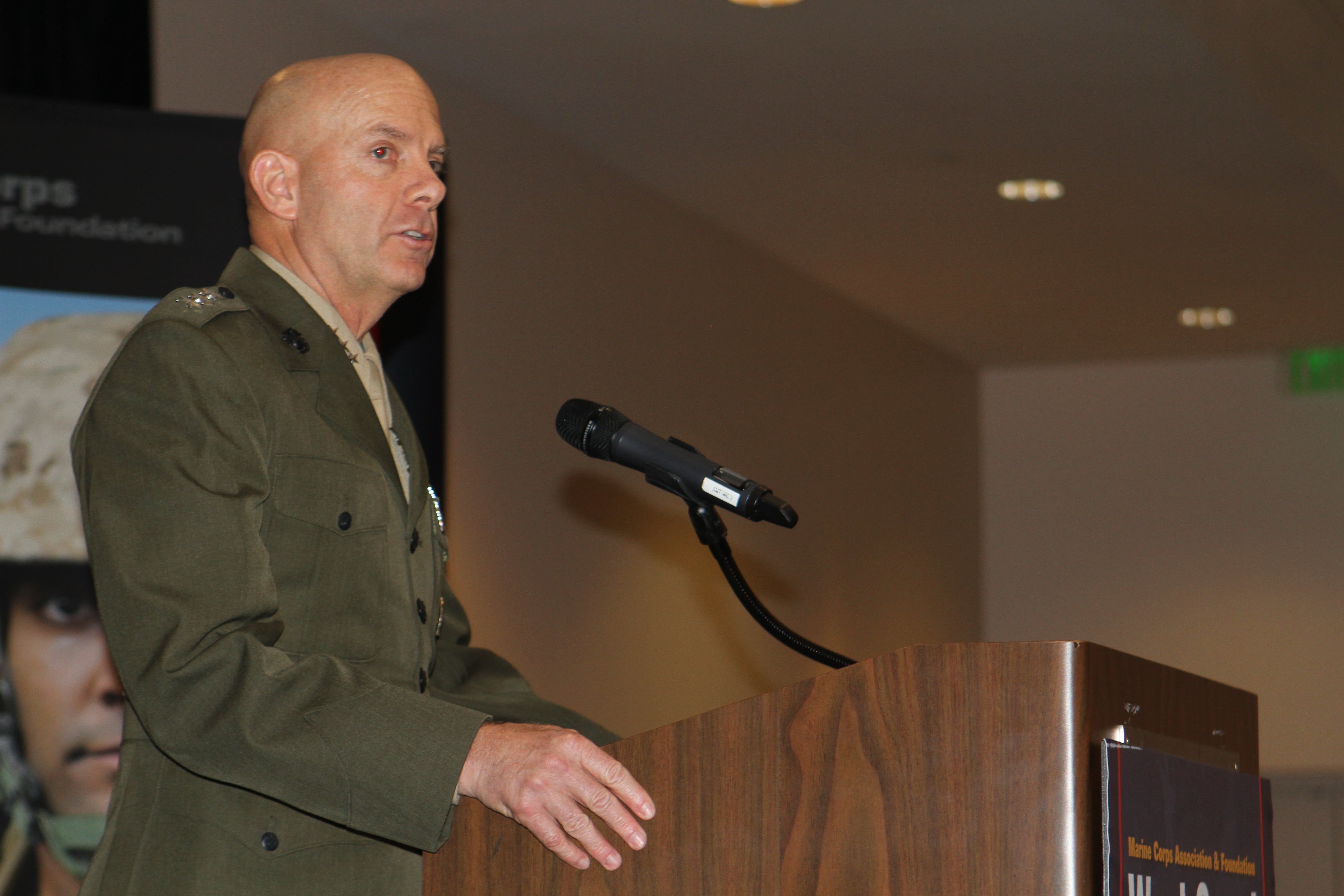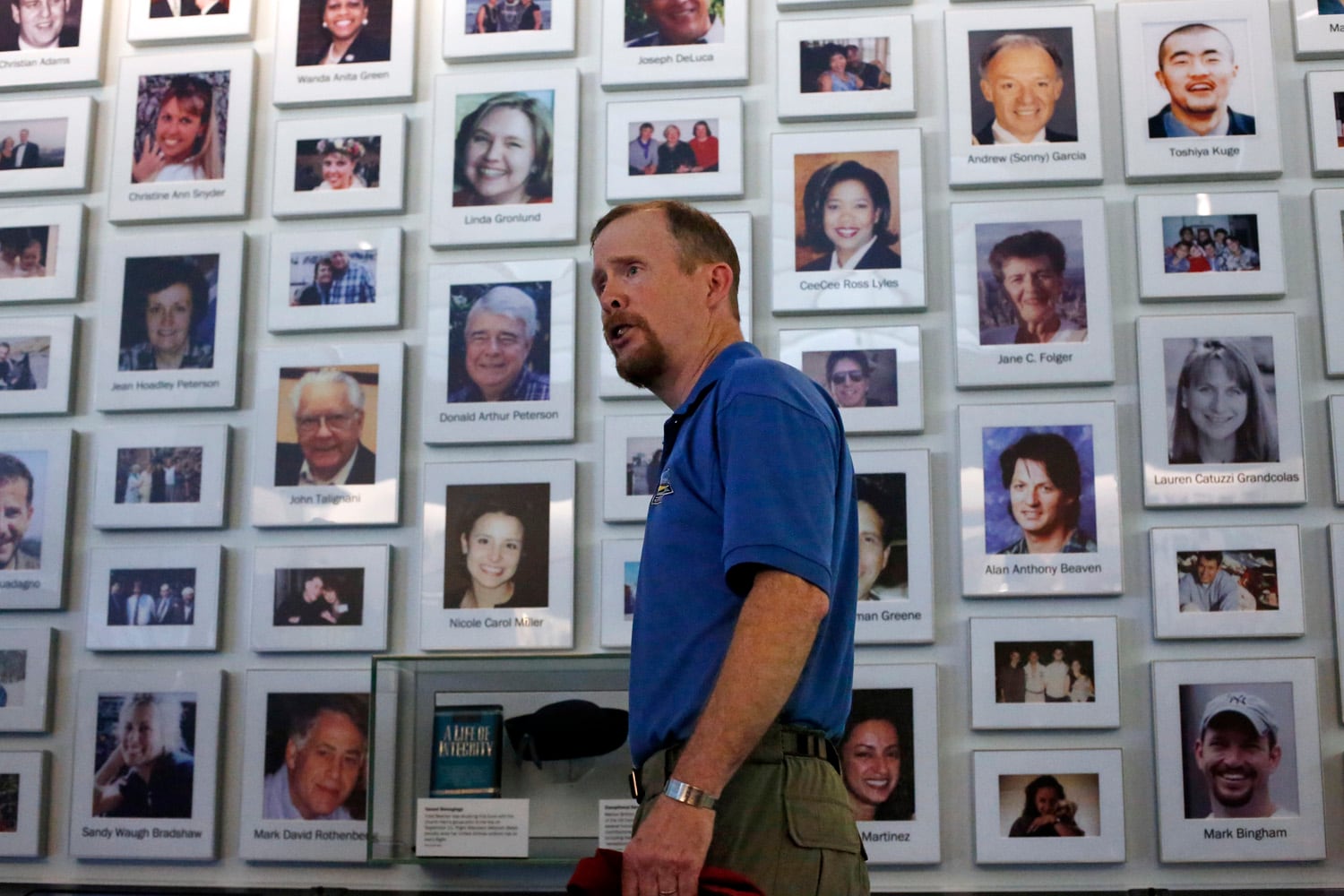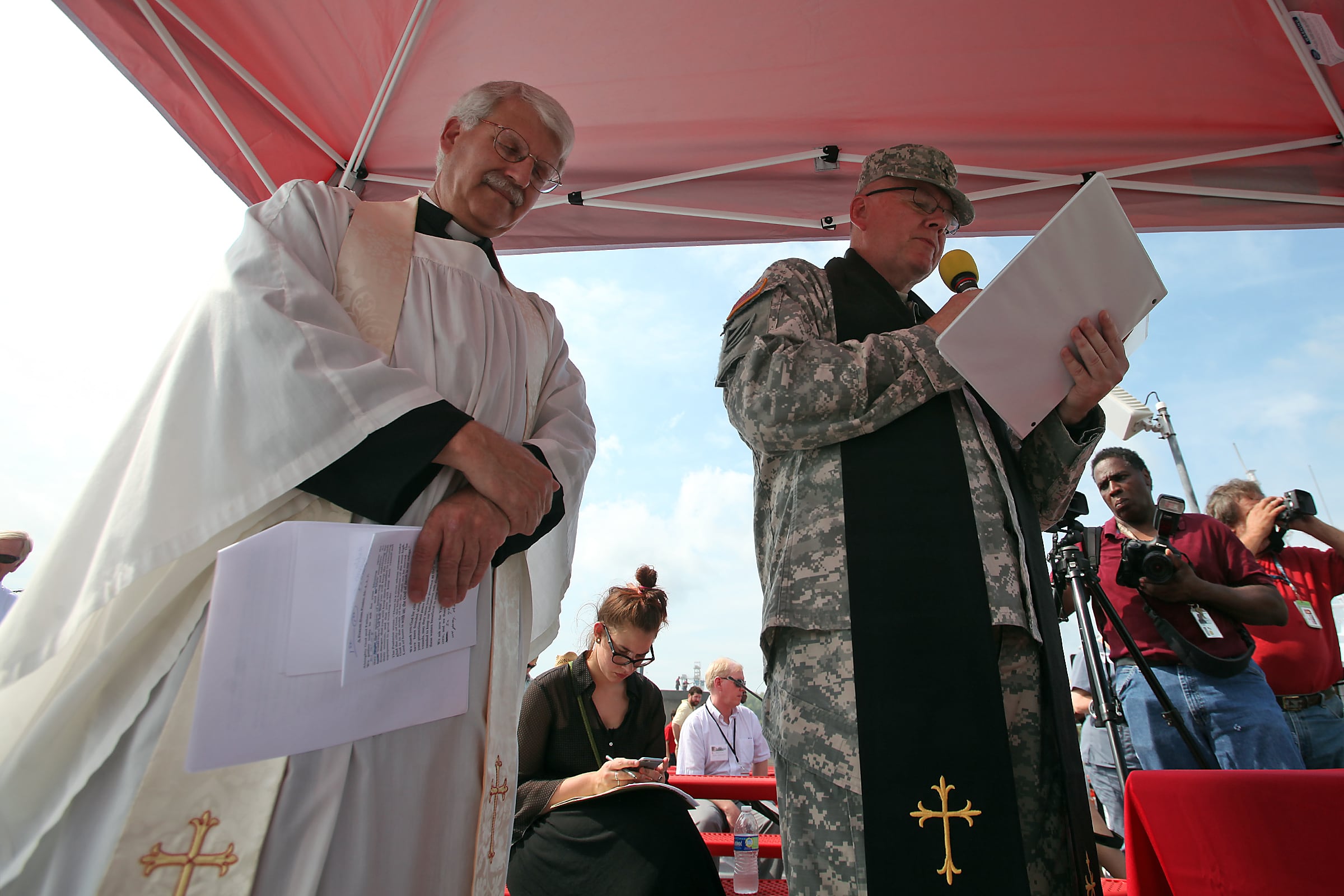New cyber warfare capabilities have been a major boon for the Corps as service leaders have worked to develop the growing field, but Marines are still learning how best to weed through the slew of data they're faced with during a mission, according to a three-star general. on the battlefield that have expanded capabilities.
Lt. Gen. David Berger, commander of I Marine Expeditionary Force, said in a Jan. 28 speech that the capabilities of Marines in the cyber community are incredible. But cyber warfare doesn't come without challenges, he added at the event hosted by the Marine Corps Association and Foundation.
There's so much information flying at Marines in tactical environments that sorting through the details can be overwhelming, he said.
"It's ... a lot of information for us to manage," he said. "It's at a rate faster than we can absorb."
He said that tThe Marine Corps is going to rely on the defense industry to help make sense of the deluge of information Marines receive on missions, he said. That will help them and to sort the irrelevant data they intercept from the juicy bits of information that are helpful in tactical settings.
The amount of incoming digital information is extensive, he said. The 11th Marine Expeditionary Unit can move the equivalent of 300 Libraries of Congress, and tToday's company commanders have the command and control capabilities of battalion commanders six or seven years ago, Berger said.
That kind of data load is high not only for complex combat situations, but also for less risky humanitarian relief missions, he said.
"At the tactical level, we are over-saturated with that coming in," he said. It's at a rate faster than we can deal with at the tactical level," he said.
Speaking to an audience that included defense industry representatives, Berger asked for their assistance in developing solutions to help Marines make good use of this data.

Lt. Gen. David Berger, commanding general of I Marine Expeditionary Force, speaks to guests at the fifth annual Marine Corps Association and Foundation West Coast Dinner in California on Jan. 28.
Photo Credit: Lance Cpl. Jenna Loofe/Marine Corps
The Corps has tried to train Marines to handle the heavy load of information. In November, during Exercise Bold Alligator, the Office of Naval Research set up a series of electronic devices in an urban terrain training facility at Camp Lejeune, North Carolina. The system was designed to replicate the countless cell phone calls, radio signals, emails and other communications that are a part of the fabric of a busy city's electronic spectrum.

But in the digital cacophony were messages from a criminal group that wanted to purchase weapons and use them to attack ships laden with sailors and Marines operating off the coast. Cyber Marines were tasked with finding the messages from the virtual bad guys and passing it along to commanders on the ship. Those commanders would then move ground units.
The exercise also, for the first time in training, required Marines to sort signals emitted from multiple sources. Previously, Marines would focus on a single target if they knew that it was emitting all of the signals in a training exercise. This change made the challenges of the training exercise drill more realistic, officials said.
Marines weren't completely successful in the cyber fight during Bold Alligator. Officials said some of the information they should have collected never made it into the communication pipeline, or it arrived late.
The Corps plans to continue training and testing to integrate Marines from the cyber community into ground operations.





